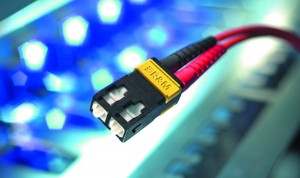
A proposed new rule for the federal e-Rate program could discourage schools from buying service contracts when they purchase network equipment, at least one program expert warns.
The rule is part of a draft version of the latest Eligible Services List (ESL) for the e-Rate, which provides discounts on the cost of telecommunications services and internet access. If approved, the revised list would take effect in the 2012 program year.
Released June 24 by the Federal Communications Commission, the draft doesn’t propose any major changes to the list of services that would be eligible for e-Rate support, but it does clarify several points.
One of these points is whether the e-Rate should apply to maintenance and support for internal connections, or the wiring, routers, switches, and file servers needed to bring internet access into classrooms.
The FCC’s proposal states that basic maintenance of internal connections is to be reimbursed only for “actual work performed.” That means schools can’t apply for e-Rate discounts on the service contracts they might buy along with any internal connections; instead, they must wait until work is performed and then apply to be reimbursed for the cost of this work.
Cathy Cruzan, president of the e-Rate consulting firm Funds For Learning, said she worries that the rule might discourage schools from buying service contracts on their network gear, because they would have to go through two sets of program reviews.
Buying a service contract up front would complicate the e-Rate process, she explained, because schools would have to separate the cost of this contract from their other requests when applying for discounts on internal connections. Then, if any work related to the contract is performed, schools would have to calculate a dollar value for this work, which might (or might not) correspond with the cost of the contract itself.
Skipping the service contract altogether would be easier, because schools would just apply to be reimbursed for their out-of-pocket expenses in maintaining their equipment. Yet, that could leave schools with unforeseen expenses they might not have budgeted for.
The maintenance issue is one of several items the FCC seeks to clarify in its revised ESL. Another is web hosting; the agency proposes to keep web hosting as an eligible service, but not if the website in question restricts access to students and staff. (In other words, the e-Rate would cover a portion of the cost of web hosting only for school websites that are open to the public.)
The FCC’s proposal also…
• Clarifies that satellite internet service is eligible for e-Rate support;
• Clarifies that firewall services cannot be provided by a vendor other than a school’s internet access provider and cannot be priced out separately; and
• Adds smart phones and tablets as examples of end-user equipment that is not eligible for support, among other changes.
This is the earliest the FCC has released a draft of its revised ESL, which the agency does before every program year. The FCC has “made it clear they want to streamline the program,” Cruzan said, and releasing its proposed ESL sooner in the process is another example of this, as it gives schools more time to plan their e-Rate needs.
Comments to the FCC’s proposed changes must be submitted to the agency no later than July 15, and reply comments are due July 25. The FCC will issue a final version of the ESL after reviewing stakeholders’ comments.

